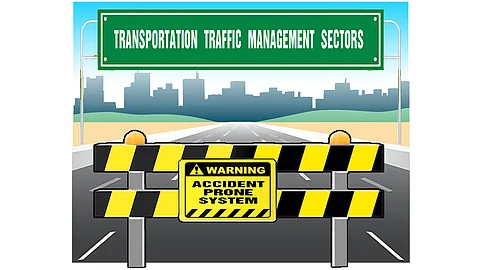
- NEWS
- the EDIT
- COMMENTARY
- BUSINESS
- LIFE
- SHOW
- ACTION
- GLOBAL GOALS
- SNAPS
- DYARYO TIRADA
- MORE

The system is broken. The admission came from Transportation Secretary Vince Dizon to acknowledge a deeply flawed road system, hit recently by a series of tragic accidents, including a bus crash on the Subic-Clark-Tarlac Expressway (SCTEX) that killed 10 people and an incident at Ninoy Aquino International Airport (NAIA) that claimed two lives.
The tragedies underscored the urgent need for reform, as public confidence in road safety has eroded.
Dizon said he was directed by President Ferdinand Marcos Jr. to deliver justice to the victims, signaling a pivotal moment for systemic change in the transportation and traffic management sectors.
“Improving road safety is the justice the government can give to the 12 people who died these past few days, and to all those who died or were injured by road accidents,” Dizon said.
Many Filipinos, he said, were now wary of going on the roads.
“We don’t feel safe on the roads, I have been directed by the President to act and to fix it,” he said.
Included among the fixes would be mandatory drug testing of all drivers of public conveyances.
The program will have the Land Transportation Office (LTO) and the Land Transportation Franchising and Regulatory Board (LTFRB), both under the Department of Transportation, working with the Philippine Drug Enforcement Agency (PDEA).
Drivers of public utility vehicles will have to submit to regular mandatory checks, not only for drugs but also for alcohol use.
“We’re recommending tests every 90 days,” Dizon said.
The policy, effective immediately via Department Order 2005-008, would require operators to cover the testing cost and not deduct it from the drivers’ salaries.
The maximum number of consecutive hours public transport drivers may be on the road will also be reduced to four hours from six.
“This is consistent with the standards of other countries such as in the European Union and Vietnam,” Dizon said.
Driver fatigue, suspected in the SCTEX crash where the driver reportedly fell asleep, is a major cause of accidents. Long trips will require at least two drivers to alternate at the wheel.
Road worthiness checks of public vehicles will be conducted regularly, “with the frequency of the drug testing.”
“I want the rules to be clear and enforceable,” Dizon emphasized.
He said that if the government cannot afford to buy enough motor vehicle inspection systems, they might be outsourced.
“We need to have a practical solution to this, and I have asked the LTO and LTFRB to find a way,” he said.
Practical driving tests and exams on road rules will also be enhanced.
“Wala nang padulasan, buhay ang nakataya (No more grease money, lives are at stake),” Dizon stressed.
Road safety issues have long dogged motorists, with approximately 12,000 road deaths annually around the globe, according to the World Health Organization.
The recent local accidents highlighted systemic failures: inadequate driver screening, lax vehicle maintenance, and weak regulations enforcement.
The refusal of the driver of the Solid North bus in the SCTEX accident to undergo a drug test after the crash exposed gaps in accountability, fueling Dizon’s outrage as he said that such attitudes are unacceptable if lives are to be saved.
The pervasive issue of bribery, locally termed “padulas,” has allowed unfit drivers and vehicles to operate on the roads, exacerbating the crisis.
Dizon’s directive directly addresses the culture of corruption, emphasizing that lives depend on rooting it out.
